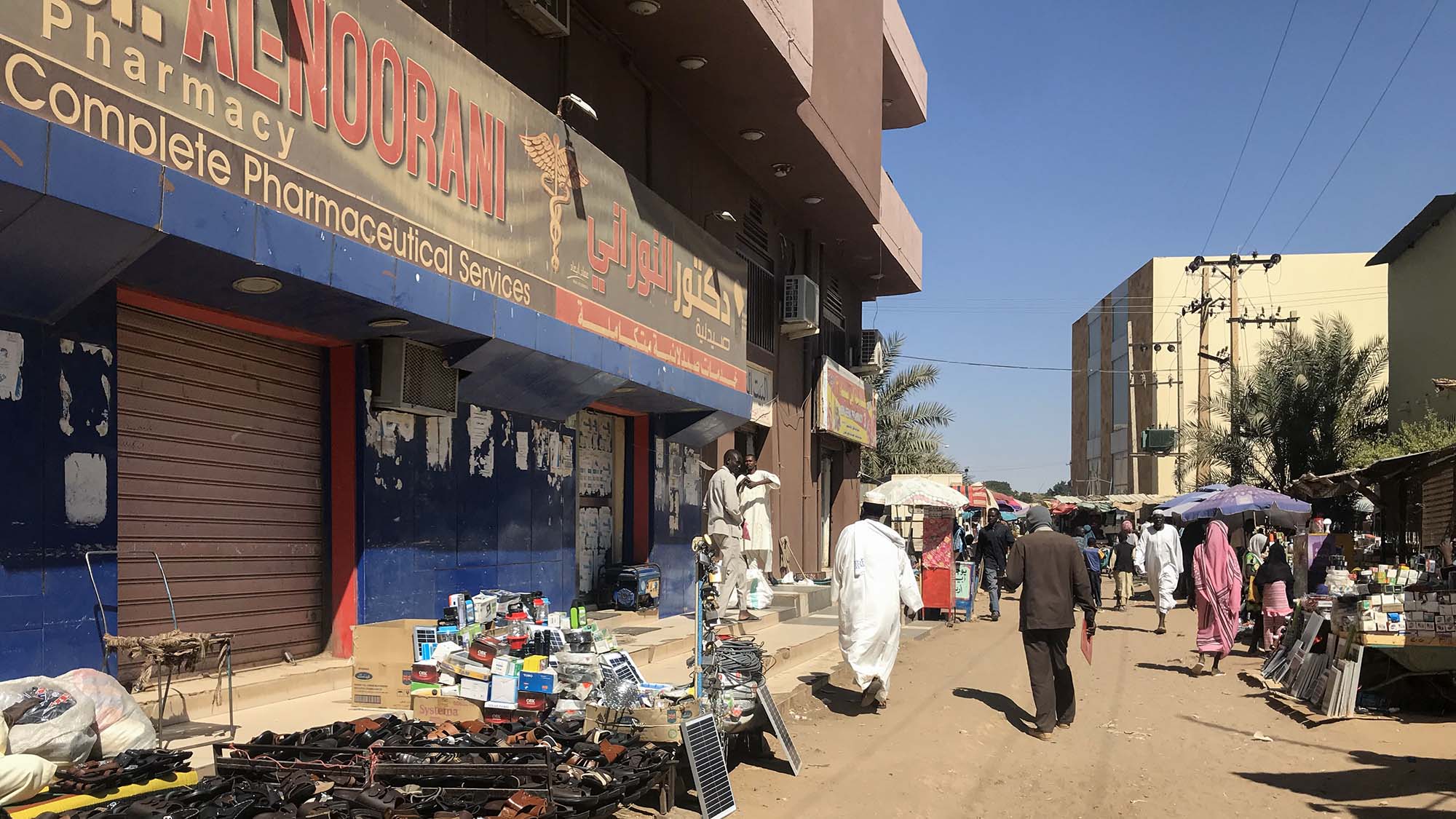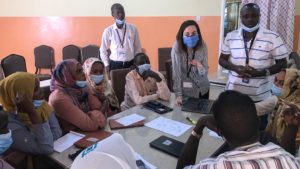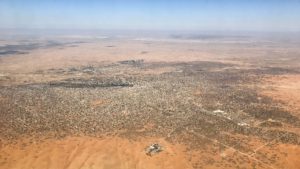The durable solutions analysis – aimed at informing solutions programming and generating baseline data for the Peacebuilding Fund (PBF) in Darfur, Sudan – is well underway. Following the development of the data collection methodology and tools, JIPS helped deliver tailored training workshops for both field supervisors and enumerators. We are now processing the datasets from the eight target localities and preparing the joint analysis with partners from the PBF Sudan and the Durable Solutions Working Group (DSWG, including UNICEF, UNDP, UNHCR, UN-Habitat, FAO, and IOM).
This article is part I of our update on the ongoing durable solutions analysis in Darfur, Sudan. We highlight how this exercise builds and expands on the previous durable solutions exercise implemented in El Fasher between 2017 and 2019. We also take a closer look at how collaboration on durable solutions is being anchored at both the national and local levels and why this is critical to inform lasting solutions and peacebuilding efforts. Part II in this series (coming soon!) dives deeper into data collection and the village sketching approach as a mechanism to manage the operational challenges of fieldwork in a context like Darfur.

Hospital of El Fasher, December 2020. © JIPS / Ola Samarah
![]() The exercise in brief
The exercise in brief
Launched in 2019, the Peacebuilding Fund (PBF) for Sudan aims to support government efforts to build peace in Darfur. The Durable Solutions Working Group (DSWG) is in charge of overseeing and coordinating the data component under the PBF outcome pillar for durable solutions, to ensure that data collection initiatives are streamlined and coordinated as well as adequately support the wider humanitarian, development, and peace nexus.
The JIPS-supported durable solutions analysis is specifically looking at eight localities across five states in Darfur (Tawila, Assalaya, Yassin, Sheiria, Nertiti, Um Dukun, Gereida, Jebel Moon). It focuses on four population groups, namely internally displaced persons (IDPs) in displacement, IDP returnees, neighbouring non-displaced communities, and nomads. A mixed methods approach is being applied, comprised of sample-based household surveys and qualitative data collection.
The aim is to understand both the socio-economic situation of the mentioned population groups (through a comparative analysis) and the wider challenges faced by the communities regarding peacebuilding and livelihoods. Additionally, the exercise will generate a baseline to measure the impact of the programmes in the future. This latter aspect was initially planned as a separate exercise, but then integrated into the durable solutions analysis to ensure an ethical and responsible data management process that avoids overburdening the communities with multiple surveys.
The 2017-19 exercise implemented in El Fasher by the Government of Sudan together with the UN Country Team and the wider international community (represented by the DSWG and comprised of UNDP, IOM, UNHCR, WFP, UNICEF, OCHA, UN-Habitat, the INGO Steering Committee and donors) brought about many useful lessons and recommendations (see external evaluation report, commissioned by the DSWG). These fed directly into this new exercise that scales the durable solutions analysis up to five states of Darfur as part of the PBF implementation.
Specifically, for this new exercise we enhanced the qualitative component for a richer analysis of the context. We built on the indicators used for the El Fasher exercise but reviewed them against their relevance, need and the weight of each module. At the same time, we had to adjust the methodological approach to the distinct situations in each of the eight localities in focus of the current exercise.
While El Fasher is an urban area characterised by protracted displacement and little population movements, the target localities of this second exercise are rural areas, dispersed in scope (counting many small villages spread across Darfur), and in some cases marked by volatile population movements. This meant that baseline figures, where available, had to be considered with caution. For several locations we also lacked up-to-date spatial and population information. To overcome these challenges and gaps, we developed a distinct approach that combines village sketching and ‘pre-fieldwork missions’ (more on this in part 2 of this series).

JIPS’ advisor delivering a training to field teams in El Fasher, North Darfur (Sudan). November 2020. © JIPS / Ola Samarah
As mentioned, the national-level Durable Solutions Working Group is in charge of overseeing the data collection initiatives under the PBF’s durable solutions pillar for Sudan. This covers supervising the ongoing durable solutions profiling and specifically aspects such as the quality control of the broader process, the deliverables of all implementing partners, and the coordination of work streams as well as their visibility with government authorities and the broader humanitarian-development community.
Partners from the PBF and the DSWG have been involved early on and at different stages of the profiling process. From consultations and participation in field training sessions, to dedicated meetings with DRC Sudan (who are co-chairing the DSWG), and activities to engage the Sudanese Government and other field partners: the collaboration spans the national and local levels.
These efforts have not only facilitated the fieldwork and helped ensure stakeholders’ buy-in as well as contribution to the process as a whole. They have also enhanced the visibility and helped reiterate the importance of the durable solutions work in the country. The engagement with local actors, including authorities, is critical for the process and especially in view of the action planning for durable solutions programming. Similarly, DRC’s participation will help pave the way for more involvement of NGOs at a later stage once the locality-level action plans are ready.

A bird’s view of El Fasher, Darfur (Sudan). December 2020. © JIPS / Ola Samarah
Having almost completed the data collection, we are currently supporting partners to prepare the joint analysis process. This usually is a critical stage in a profiling process, as it aligns partners on what the data tell us about the ‘bigger picture’ of the displacement situation in the eight localities, and how this translates into recommendations (check out our Joint Analysis Guide to learn more about what it entails).
Importantly, the joint analysis will lay the foundation for the collaborative action planning workshops, expected for early summer 2021. At JIPS we are supporting partners throughout the process.